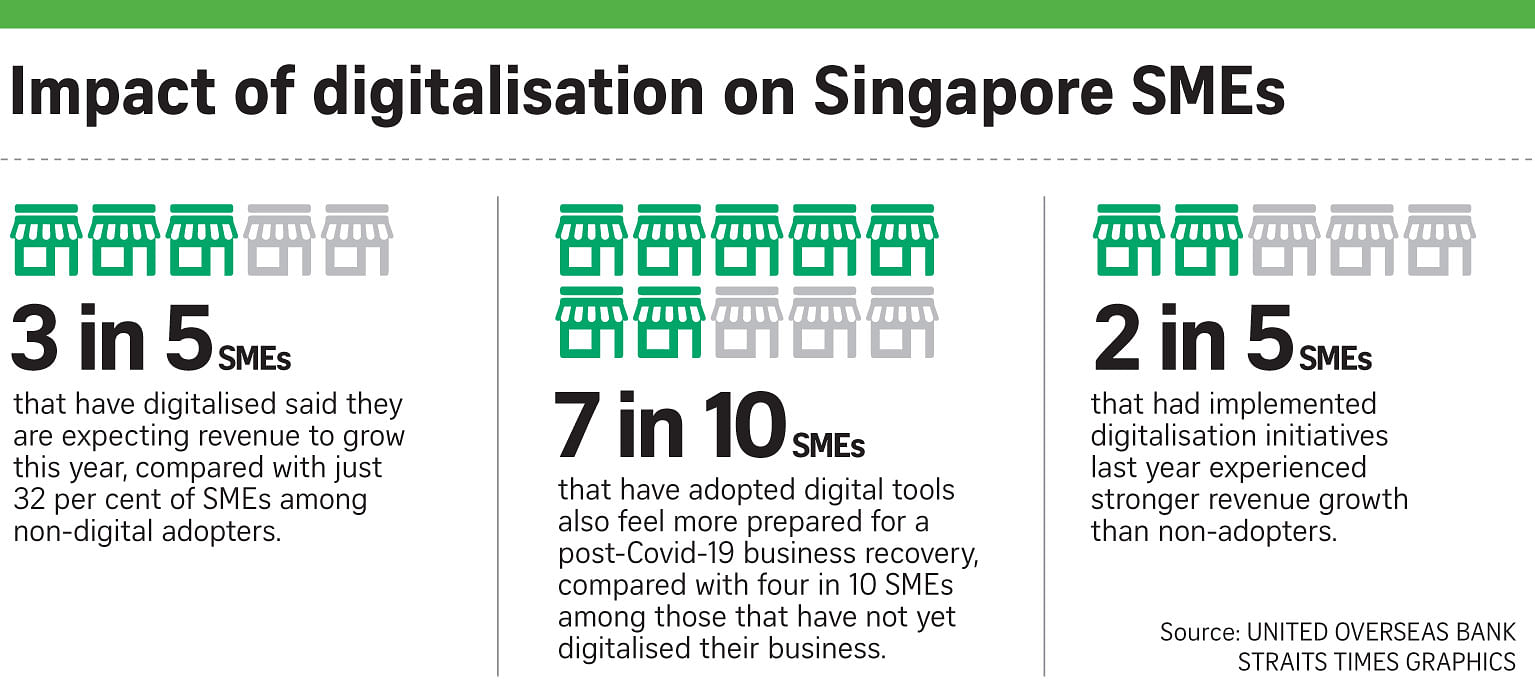Small businesses lagging behind in digital transformation: Survey
Reasons for holding back include high costs, cyber-security worries, lack of digital skills
Sign up now: Get ST's newsletters delivered to your inbox
Jolene Ang
Follow topic:
Small businesses are lagging behind their larger peers in digital transformation, a survey has found.
They make up 72 per cent of the companies polled that have not yet digitalised.
Their top reasons for holding back include high costs, fear of cyber-security issues and a lack of necessary digital skills among employees, according to the UOB survey of 782 small and medium-sized enterprises (SMEs).
Some are also concerned that new systems will not be compatible with their old ones.
The UOB SME Outlook 2021 Study, which was published yesterday, was conducted from late November to early December among companies with revenue of less than $100 million.
Its aim was to understand the rate of digital adoption among SMEs in Singapore and the support they needed.
The survey found that 41 per cent of SMEs that implemented digitalisation initiatives last year recorded revenue growth.
In contrast, of SMEs that had not digitalised, only 24 per cent saw their revenue improve.
Those that had digitalised their entire business or multiple areas of the business reported better revenue growth than those that digitalised only one area.
Six in 10 SMEs that did not adopt any digital tools saw their net revenue decline last year from 2019.

The SMEs that have digitalised were also more optimistic about 2021, with three in five saying they are expecting revenue to grow this year, and seven in 10 saying they feel more prepared for a post-Covid-19 business recovery.
By contrast, only three in 10 SMEs that did not adopt digital tools are expecting revenue growth this year, and only four in 10 non-adopters feel more prepared for business recovery after the pandemic.
UOB head of group business banking Lawrence Loh said: "Digitalisation offers businesses many opportunities, from improving their processes and reaching out to new customers to having a direct and measurable impact on their revenue."
Digitalisation efforts also helped SMEs achieve greater productivity last year, the study found.
This was a business objective that firms had listed as a top priority for the year in a separate UOB study conducted in late 2019.
SMEs in business services, manufacturing and engineering, community and personal services, technology, media and telecommunications as well as consumer goods sectors saw the highest year-on-year percentage increases in productivity and efficiency, ranging from 42 per cent to 49 per cent.
Aside from higher productivity, digitalisation also helped businesses improve their customer experience, increase coordination across departments, enable remote working and drive business performance.
Mr Loh said: "The study demonstrates that close to one in two SMEs that proactively took steps to adopt digital tools last year are already seeing benefits, such as greater productivity and efficiency gains, improved customer experience and higher revenue, even in a volatile business environment.
"The digitalisation journey is a long one and we urge SMEs to stay the course to see their efforts pay off when they emerge stronger through the pandemic."

